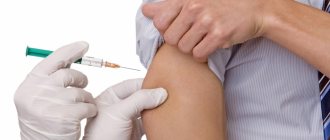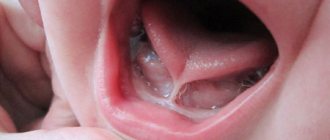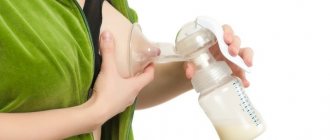What is newborn care?
Patronage for newborn children is an observation program during the first month of life.
A young mother has a lot of questions brewing about caring for her child. The local pediatrician or visiting nurse explains in detail how to properly swaddle the baby, feed him, how to bathe and treat the umbilical wound. There is also a conversation with the new mother, where they tell you how to eat properly while breastfeeding. During each visit, the doctor examines the newborn so as not to miss any pathology. Be sure to examine the umbilical wound, the child’s reflexes and palpate the tummy.
Another goal of patronage is to identify the conditions in which the child is kept. Be sure to pay attention to the cleanliness of the apartment, the size of the living space and the number of rooms.
Who is entitled to patronage supervision? Everyone can count on him. This does not depend on the place of registration or the presence of a compulsory health insurance policy and is absolutely free.
Patronage nurse: who is she and why is she needed?
Have you and your newborn been discharged from the maternity hospital?
Did you find yourself alone with your child in your own home and began to worry about whether you are caring for the baby correctly?
This is quite natural, because in the maternity hospital you and your baby were under the supervision of doctors and medical staff. You could always ask questions and get competent answers, but at home the situation was completely different.
Don't worry, you weren't left to fend for yourself. On the day of discharge from the maternity hospital or the next day, a visiting nurse will definitely come to help you adapt to new conditions and learn how to properly care for your newborn.
According to modern standards for caring for newborns, every newborn should have a visiting nurse The patronage service for infants during the first month of life is free.
Read also: How to choose the right first diapers
Patronage nurse - who is she?
A health visitor is a qualified nurse who has knowledge of obstetrics and preventive medicine. The duties of a visiting nurse include monitoring the health of the baby and mother, teaching parents how to properly care for a newborn. Please note that in addition to its main functions, it must make an assessment of the social and living conditions of the newborn.
Olga Masalitina , project coordinator of the Association of Family Medicine, author of the project “A Guide to the Happiest Baby” : “Unlike a pediatrician who provides medical care to babies, a visiting nurse mainly carries out explanatory work for parents. She talks about how to care for a child and can answer some questions about organizing breastfeeding. Most importantly, it is the visiting nurse who can promptly notice problems in the baby’s development and advise parents to visit specialized specialists. A patronage nurse is a kind angel who helps young mothers and fathers navigate a new situation for them.”
When should the visiting nurse arrive?
The health visitor should visit your baby 3-5 times during the first month of life. The district pediatrician will visit the baby several more times during this period.
The first time , as already mentioned, the sister will come on the day of discharge from the maternity hospital or the next day. The second time - a day after the first visit, the third time - on the 14th day of the child’s life, the fourth time - on the 21st day of life and the fifth time - on the 28th day. The visiting nurse's visit schedule may vary depending on the child's condition.
Read also: Treating diaper rash and inflammation in babies
How can a mother prepare for the arrival of a visiting nurse?
To ensure that your meeting with the patronage nurse is productive and quick, it is advisable to:
- put the extract from the maternity hospital ;
During the first visit, the visiting nurse will examine the baby: his tummy, umbilical wound, fontanel, skin, mucous membranes, evaluate the child’s reflexes, muscle tone
- make a list of questions that you will ask your sister;
- clean the apartment , since the sister will look not only at your baby, but also at the conditions in which he lives;
- hang a clean towel ; the sister will need to wash her hands before examining the child;
- prepare a diaper for the baby ;
— choose a place for inspection ;
- get cotton swabs, discs, means for treating the umbilical wound, a changeable diaper and a notebook in which you will write down all the data about the clinic.
Examination of the baby during the visit of the visiting nurse
During the first visit, the visiting nurse will examine the baby: his tummy, umbilical wound, fontanelle, skin, mucous membranes, and evaluate the child’s reflexes and muscle tone. The sister will ask the mother questions about how well the baby takes the breast, how much time he spends at the breast, how often he eats, and what type of stool the baby has. In addition, the patronage nurse will clarify the specifics of the course of pregnancy and childbirth.
The sister’s responsibilities also include monitoring the child’s social and living conditions; she will pay attention to the order in the apartment, the presence of a crib and a place for changing the baby.
Also, the visiting nurse will teach the parents of the newborn how to perform the daily toilet of the child, do light gymnastics, tell you how best to dress the baby at home and on a walk, and how to establish a sleep-wake schedule.
Examination of the baby's mother
The health visitor usually also examines the mother: assesses the condition of the mammary glands, asks questions about the nursing mother’s diet and well-being.
In addition, the sister will recommend that the parents write down all the necessary information about the children's clinic, to which mom and dad will take the baby after he turns one month old: telephone number, address, reception hours, when the clinic has a baby day.
At all subsequent visits, the visiting nurse will assess the general condition of the child, ask if the parents have any complaints, and monitor how correctly mom and dad follow the recommendations for caring for the newborn.
Read also: Feeding a baby by month: basic rules
As sad as it may be, not all patronage nurses do their work conscientiously. If it seems to you that your sister is not coping with her responsibilities or is simply recommending that you do something that doesn’t fit in your head. For example, walking your baby in three blankets in the summer, not opening the windows in the heat to avoid a draft, not walking with your baby when it’s slightly below zero in the winter, you can complain about the visiting nurse to the clinic.
A forum member mother with the nickname Liza28 shared her story: “The patronage nurse came to us on the second day after being discharged from the maternity hospital (she was a smiling lady of retirement age), she filled out all the necessary papers, examined the baby, and asked to bring peroxide and calendula to treat the umbilical cord. wounds. This surprised me, because I told her that I was treating my navel with boiled water on the recommendation of the doctors from the maternity hospital. A dear grandmother-nurse, despite everything, treated my son’s navel in her own way, said that they were advising nonsense there, and left. I was left at a loss, terribly nervous, but continued to care for my navel with boiled water. Thank God, everything healed well. The fact that nurses come is great, but it would be even better if neonatologists from the maternity hospital, doctors and visiting nurses from the clinic agreed on how to care for the navel of babies, so as not to confuse the already confused young mothers."
Read also: What is the best position for a baby to sleep in?
Each parent has the right to refuse the services of a visiting nurse from the district clinic; to do this, they must write a corresponding application addressed to the director of the clinic. When refusing the services of a visiting nurse, parents take full responsibility for the health of the baby.
Olga Masalitina, project coordinator of the Association of Family Medicine, author of the project “A Guide to the Happiest Baby” : “If for some reason parents refuse the services of a visiting nurse from the district clinic, they can always turn to private family medicine clinics. In such clinics there is no concept of “visiting nurse”, but there is a family doctor who can replace the sister. Usually, in private clinics, parents are offered a full range of services to care for their newborn, which includes not only visits from the family doctor to the baby, but also the necessary tests.”
Last visit of the visiting nurse: what to do next?
During the last visit (on the 28th day of the baby’s life), the visiting nurse should tell the mother that after the baby is one month old, the mother should come with the child to the clinic for an appointment with a pediatrician on the “infant” day. Now mother and baby will need to visit a pediatrician every month until they are one year old.
Read also: Features of a newborn’s skin: care rules
It is better to be well prepared for your first visit to the pediatrician. You must take with you the child’s birth certificate, mother’s passport, a clean diaper, diaper, and wet wipes. It is advisable for the mother to wear clothes in which she could easily feed the baby at any time. You also need to be patient, since the queues at children's clinics have not yet been canceled! It is advisable to ask your husband, grandfather or grandmother to go to the clinic with you so that they can help you hold or change the baby if you have to wait too long.
A good foster nurse, mother's love, care, peace of mind and milk - this is what your baby needs for healthy development in the first month of life!
Read also: Daily routine for babies in the first year of life: stick to the routine
Doctors diagnose a baby's health before it is born. They examine the size and proportions, find out the heart rate, and test the blood for genetic complications.
Immediately after the baby is born, the pediatrician determines the condition of the baby in the first and fifth minutes of life. The Apgar scale is used, the main components of which are breathing, muscle tone, heartbeat, skin color, and reflex strength. Each of the indicators is assessed using a 2-point system. If the heart does not beat or the baby does not breathe, then the score is 0. When everything is fine – 2. Then the indicators are summed up. A score of 7-10 points is considered good. It should be noted here that even the healthiest kids rarely get the highest score. Much more important is the improvement in the score in the 5th minute compared to the first. This suggests that the child recovers quickly from stress.
Before discharge, the baby will be examined again by a neonatologist. He assesses the state of health, records weight, carefully checks reflexes and gives the mother recommendations regarding further care of the newborn.
After discharge, the next day, the local pediatrician comes to visit the new family member. He carefully reads the report and asks the mother about possible hereditary diseases of the child. The doctor’s responsibilities include examining the conditions in which the baby finds himself: the presence of a separate room, the cleanliness of the room. Be prepared for the doctor to ask whether adult family members smoke.
The doctor then examines his new patient. The baby is placed on the changing table. If there is none, use a regular table and a blanket folded several times. It is advisable that the place is well lit.
Advice. If you know the approximate time of the doctor's visit, try to feed the baby in advance so that the baby does not become capricious.
The doctor evaluates the baby's posture. Its arms and legs should be slightly bent. Then he examines the skin. It is important that it has a pinkish tint. A slight blue discoloration is allowed in the area of the feet and palms. The blue color of the skin above the upper lip, as well as a yellowish tint to the entire body, the presence of pimples and diaper rash can be alarming.
Particular attention is paid to the umbilical wound. To make it heal faster, it is important to monitor the dryness of the skin in this area.
The pediatrician rechecks the reflexes. It also draws attention to the evenness of the spine and the symmetry of the folds on the baby’s legs.
The mucous membrane must be examined. A small white coating on the gums indicates thrush. On the tongue - about insufficient functioning of the digestive system.
Using a phonendoscope, the heart rhythm and breathing of the newborn are listened to. A little wheezing shouldn't frighten mom. Most likely, the reason is excessively dry air.
If you have any questions, do not hesitate to ask your doctor. There is nothing reprehensible in showing the doctor a soiled diaper if you are not sure that the baby’s tummy copes with its functions. Tell us how the baby eats, ask for advice on organizing breastfeeding.











